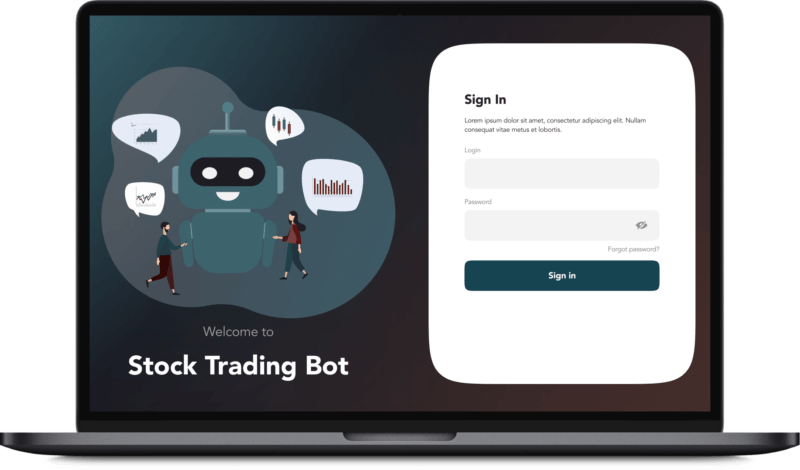
A cloud-based trading bot that automatically trades stocks per intraday scalping strategy following pre-configured buy and sell rules.
Robinhood has long been known as the app that democratized stock trading, bringing investing to the masses with commission-free trades and an easy-to-use interface. But what about futures trading? For those looking to dive into more complex financial instruments, futures trading can be an attractive option with unique benefits and risks. Let’s explore what Robinhood offers in terms of futures trading, its current status, alternatives, and what you need to consider if you’re eager to get into futures trading.
Does Robinhood Offer Futures Trading?
As of now, Robinhood does not offer futures trading. The platform focuses on stocks, options, ETFs, and crypto but has yet to introduce futures contracts. Futures trading is a complex, high-risk activity that requires a different infrastructure and more comprehensive risk management than Robinhood currently provides.
The demand for futures trading on Robinhood is evident among users looking for diversification and leverage opportunities, but the company has yet to announce any plans to include futures trading as part of its offerings. While this could change in the future, it’s essential to understand what futures trading entails and consider alternatives if you’re eager to start trading futures.
What Are Futures, and Why Do Traders Want Them?
Futures are financial contracts that obligate the buyer to purchase, or the seller to sell, an asset at a predetermined price at a specified future date. These assets can be commodities like oil or gold, indexes, currencies, and even cryptocurrencies. Futures trading allows investors to bet on the price movement of these assets, and because these contracts are leveraged, they can potentially offer high returns — as well as high losses.
Here’s why futures trading is appealing to many traders:
- Leverage – Futures allow you to control a large amount of an asset with a relatively small investment, amplifying potential gains (and losses).
- Hedging – Investors and companies use futures to hedge against price fluctuations in commodities and other assets.
- Diverse Asset Exposure – Futures offer access to markets like commodities and currencies that aren’t as readily available with stocks and ETFs.
Alternatives to Robinhood for Futures Trading
If you’re looking to get into futures trading and Robinhood isn’t an option, here are some established platforms that offer robust futures trading features:
- TD Ameritrade – Known for its thinkorswim platform, TD Ameritrade offers a highly flexible futures trading environment with educational resources and analytical tools.
- Interactive Brokers – A long-time leader in the industry, Interactive Brokers offers a comprehensive suite of futures contracts along with competitive pricing and advanced trading tools.
- E*TRADE – ETRADE’s Power ETRADE platform includes options for futures trading, extensive research tools, and educational resources for beginners.
- Charles Schwab – Schwab offers futures trading through its StreetSmart Edge platform, along with in-depth research and support.
These platforms have experience managing the complexities of futures trading and provide the tools needed for technical analysis, margin requirements, and risk management, which are crucial in futures markets.
What to Consider Before Trading Futures
If Robinhood decides to add futures trading in the future, it’s essential for traders to understand the unique risks and requirements of futures contracts. Here’s what you need to keep in mind:
- High Risk – Futures trading is inherently risky due to leverage, which means both gains and losses are magnified.
- Margin Requirements – Futures contracts require a margin account, where you’ll need to maintain a minimum balance to cover potential losses.
- Market Knowledge – Futures trading often requires a deep understanding of the markets you’re trading in, whether that’s commodities, currencies, or indexes.
- Volatility – Futures markets can be highly volatile, reacting to global events, economic indicators, and market sentiment in ways that can be unpredictable.
The Future of Futures Trading on Robinhood
There’s no telling if or when Robinhood might offer futures trading, but given the demand for diversified trading options, it’s possible. If Robinhood does launch futures trading, they may focus on simplified access with lower entry requirements, similar to how they approached options trading. However, futures trading involves additional complexities and risks that would likely require a more detailed approach to ensure user safety and market integrity.
How to Prepare for Futures Trading
If you’re interested in futures trading and are hopeful Robinhood will offer it soon, here’s how you can prepare:
- Educate Yourself: Use the time to learn the basics of futures trading, margin requirements, and technical analysis. Resources like Investopedia, trading courses, or even platforms like TD Ameritrade offer free educational content.
- Practice Trading: Some platforms offer demo accounts where you can practice futures trading without real risk. This can help you understand market behavior and refine your strategy.
- Stay Informed: Keep an eye on Robinhood’s updates and announcements. The company regularly adds new features and markets, so it’s worth watching their official channels for any news on futures trading.
Conclusion
While Robinhood has not yet introduced futures trading, the demand from its user base is clear. Futures trading offers unique opportunities and challenges, and for those interested in expanding beyond stocks and options, it’s an exciting possibility. Until Robinhood offers futures, traders can explore other platforms like TD Ameritrade, Interactive Brokers, and E*TRADE for futures trading options. Whatever platform you choose, make sure you’re well-prepared and aware of the risks involved in futures trading.